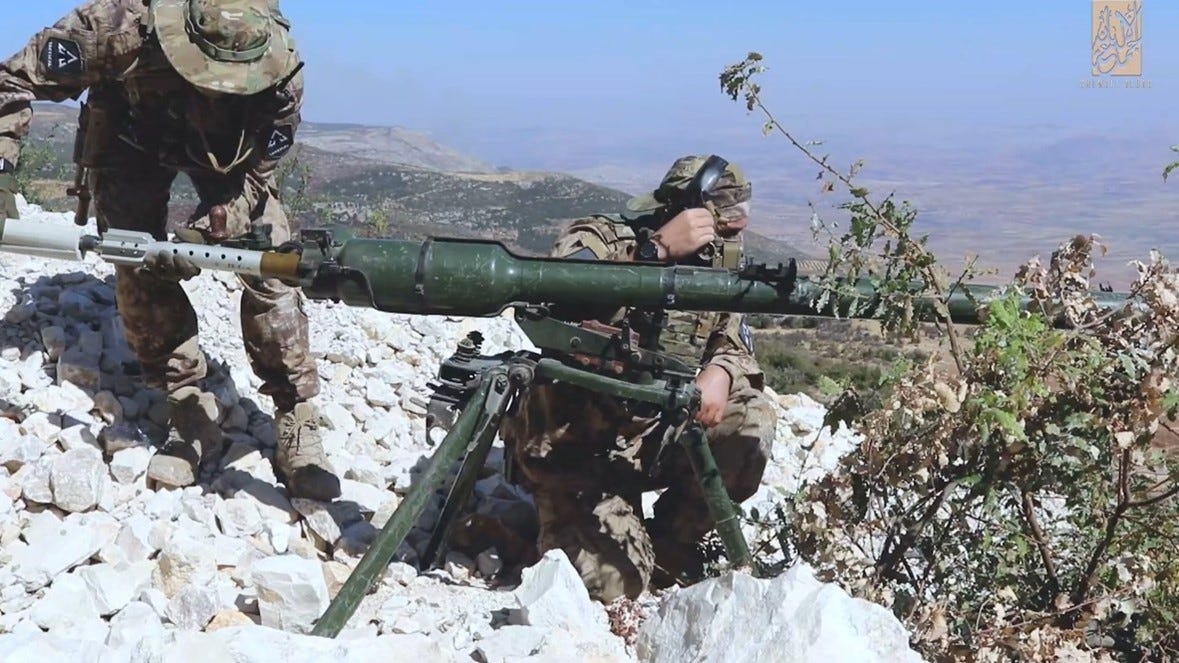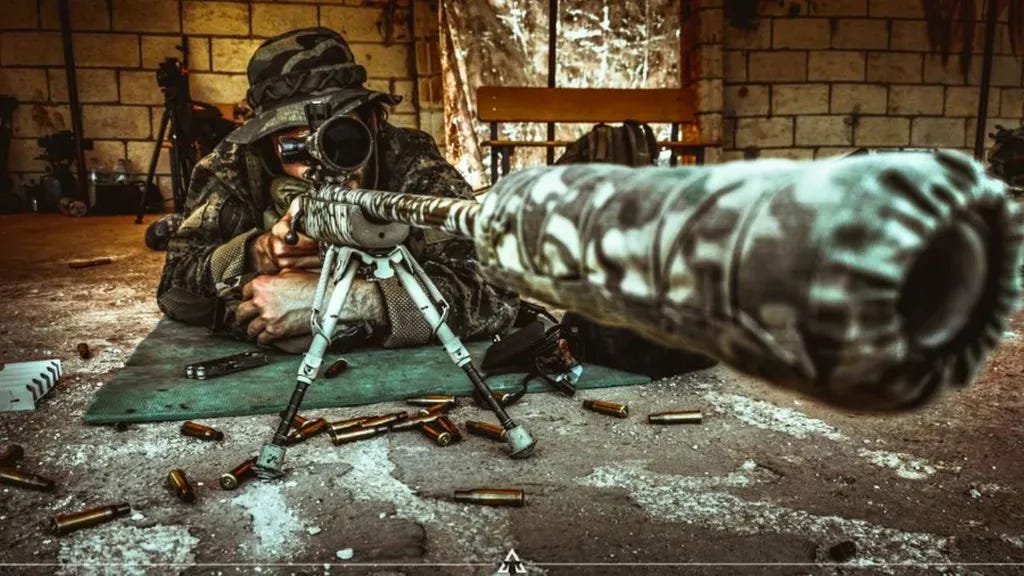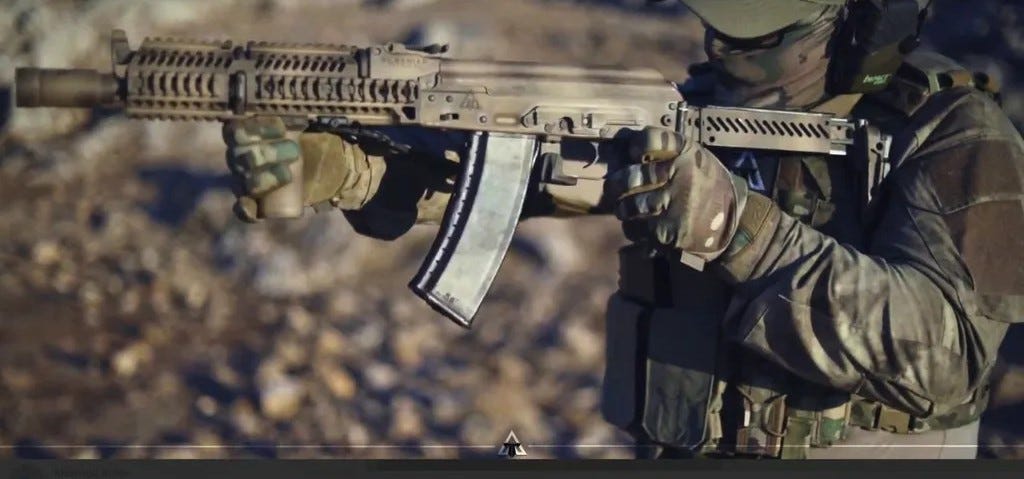Albanian Jihadists in Syria.
How did they grow up and where do they fight?
In recent months, jihadist fighters from different fronts and of different nationalities have arrived in the Russian-Ukrainian conflict. Among the various fighters who have come to fight Russia alongside the International Legion and the Ukrainian army, jihadist fighters from the Balkans have also arrived in recent weeks. Until recently, they had been operating in the ranks of the jihadist group Xhemati Alban, which has been engaged in the armed struggle within the Syrian theatre for years. In particular, the fighters of the faction linked to the leader Musa al-Albani, who wanted a group more independent of the operational and military policies of Hay’at Tahrir al-Sham (HTS), left Syria.
Who are the jihadis of Xhemati Alban?
Xhemati Alban is a jihadist formation composed of ethnic Albanian fighters from Kosovo, Albania, North Macedonia, and the Presheva Valley (territory of southern Serbia). Their website states that the group fights “Jihad in the way of Allah”. The “Albanian Congregation” began its activities in Syria in 2012, playing an important role both in the military aspect, in the organization of training camps, and finally with active participation in offensive battles. The group has spread on its website and channels the motivations that prompted the jihadist group to go and fight in Syria: “The tyranny and repression of the Syrian dictatorial regime against its people, and their call for help, have prompted Muslims from all over the world, and also from Albanian lands, to respond massively to this call”.
Xhemati Alban also plays an important role in the defence of the Ribat points in the governorates of Idlib, Hama, Aleppo and Latakia. He has participated in numerous battles and sieges over the years, such as those of the towns of Al-Fu’ah and Kafarya and the counter-offensive on Kodra Isa. The battles for which they became “famous and respected” in the Syrian context in which many congregation fighters became “martyrs” was the campaign to defend the Ribat points in the Kbeneh areas north of the Hama governorate, in the Russian/Syrian/Iranian offensive, an offensive that became the subject of stories and almost legendary among Syrian jihadists in the northwest: “the Albanian congregation was concentrated in the axes of the village of Kbeneh, where this congregation, although not very numerous, was like a strong stone in the wall of the proud fortress of Kbene that resisted over a thousand military offensives of the enemy”.
The Albanian group also participated in offensives in north-west Syria to liberate Ras al-Ayn, Abu Dhuhur, Jisr Shuguri, Keseb and Mostuma.
In June 2020, they issued a statement declaring their support for Hay’at Tahrir al-Sham and its policies and rules. In 2020 and 2021, they operated and fought in the northern areas of the Latakia governorate, the Kabani area, the southeast of Idlib governorate and the western part of the Aleppo governorate.
In 2022 and early 2023, they were always active in defending Ribat points in the Kbeneh hills, and Hama governorate, and in training militants in camps run by Albanian Tactical.
Composition of Xhemati Alban
The group internally was composed of two factions, the one linked to the historic leader Abu Qatada al-Albani who is very close to Abu Muhammad al-Julani and who supports the entry of the group within the Liwa of HTS and the one instead camped by Musa al-Albani who opposes this choice, who instead wants the group to remain only aligned to HTS and coordinate with the “al-Fateh al-Mubin Operations Room” but maintain its leadership and propaganda independence. This was until several fighters linked to the second faction decided, as mentioned above, to move to Ukrainian territory to fight alongside other Muslims fighting Russia.
Xhemati Alban has between 60 and 100 fighters and is composed of six units: snipers, miners, infantry with small arms, artillery, bomb and mortar fighters, infiltration units and a tactical training group (Albanian Tactical).
Xhemati Alban is essentially a “Katiba”, a combat unit of up to a hundred militiamen equipped with light weapons and capable of moving fast. The group's fighters probably come from paramilitary or even army backgrounds in their areas of origin and have a high level of knowledge of weapons and combat strategies.
“Albanian Tactical”, in addition to training, is also involved in the sale of military equipment, military clothing, modified weapons and firearms with all their accessories.
Since 2017, Xhemati Alban and Albanian Tactical have been promoting strong propaganda (at least until December 2022, since then the propaganda aspect has waned a lot and the last video dates back to February 2023 in which they show the defence of a Ribat point), in particular regarding military operations conducted by their snipers and what concerns military training, planning, production and modification of weapons.
The leader of Xhemati Alban
The leader and military commander of the “Albanese Congregation” is Abdul Jashari alias Abu Qatada al-Albani, born on 25 September 1976 in Skopje, the current capital of North Macedonia. Abu Muhammad al-Julani, the leader of Hay’at Tahrir al-Sham, appointed Abu Qatada al-Albani in the summer of 2014 as head of Jabhat al-Nusra's military operations in Syria. The US Treasury Department designated Abdul Jashari as a terrorist on 10 November 2016 for his active participation in the military operations of the al-Nusra Front in northern Syria. Abu Qatada al-Albani is very influential within HTS and the north-western Syrian jihadist landscape and is a close military advisor to Abu Muhammad al-Julani. Between 2019 and 2020, he served as a member of the reconciliation committee with Hurras al-Din.
His last appearance was in April 2022, when Abdul Jashari published a letter of his and then a video in which he spoke about the impact Russia's war will have on Ukraine and how it can be an opportunity for Muslims.
Conclusions: objectives and security risk assessments
Xhemati Alban has always been particularly active in the production of propaganda material aimed especially at Albanian citizens to convince as many people as possible to join the war in Syria.
In its propaganda, the most recurring topics are the armed struggle with the government of Bashar al-Assad, considered the culprit of the war in Syria and accused of killing his people and thousands of Muslims. The group has often urged Muslim Albanians to join jihadism and the armed struggle in Syria and has criticized Muslim Albanians several times for not joining the “war for Truth”.
Dozens of Albanian-language channels are active on Telegram with thousands of followers mostly aligned with HTS propaganda, but also many generically linked to jihadism and its propaganda.
Already in the past, and particularly between 2012 and 2015, hundreds of Muslims from the Balkans, especially from Albania and Kosovo, travelled to Syria and Iraq to, first, join the Islamic State and, in smaller numbers, al-Qaeda and HTS. Muslims in the Balkans have suffered, particularly with the Bosnian war, oppression and hardship that jihadist propaganda often manages to exploit to recruit or open new operational fronts.
The growing influence of the Albanian jihadist group both online and on the ground presents significant security challenges for the Balkan region.
Xhemati Alban’s last major media production was released at the end of October 2022, a video over 24 minutes long, entitled: “Portals of Lies”.
The video criticizes the Albanian, Macedonian, Kosovar, and Serbian media, which, according to the Albanian speaker, on the subject of Islamism and the jihadist Salafist armed struggle, spread false news or are subservient to the policies of different states. Xhemati Alban accuses the Balkan media of misinformation, particularly when they talk about Xhemati Alban and Albanian Tactical, accusing them of misusing the term “terrorism”. He accuses those who work for the Albanian, Serbian, Macedonian and Kosovar media, and politicians of doing so to further their political careers, explaining that the jihadist fights they wage are not terrorism. He defends their choice to operate in Syria and criticizes the media quoted calling them “tourists on holiday”.
Xhemati Alban in the video denies the Balkan media's claim that the group will return to the Balkans to exploit the various Balkan crises to establish an Islamic caliphate dubbed “Greater Albania”.
Nevertheless, Xhemati Alban’s medium to long-term threat assessment is linked to the group's areas of origin, which could see them decide to move back to operate in the Balkans, an already geopolitically complex and unstable area, to fight as they did in Syria and recently in Ukraine.
Daniele Garofalo is a researcher and analyst on Jihadist terrorism and an expert in monitoring Jihadist media channels.
Support my research, analysis and monitoring with a donation here PayPal.Me/DanieleGarofalo88







Thank you sir! Brilliant job done. Please more like this!